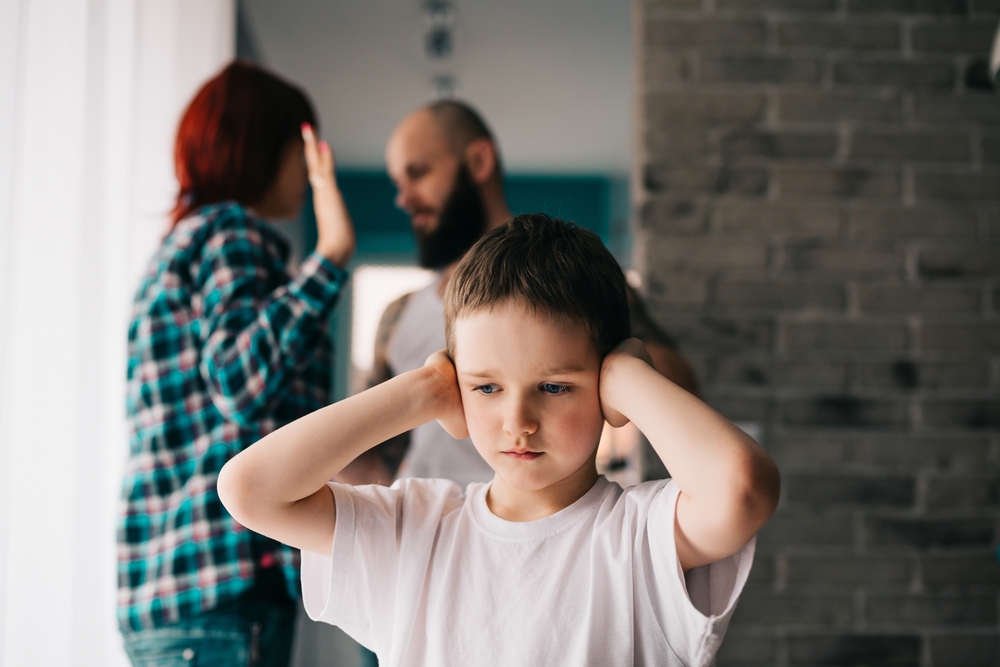They’ve been labeled “fragile,” “too sensitive,” and “overstimulated.” But Gen Z’s anxiety isn’t a character flaw—it’s a cultural condition. And when you dig beneath the usual clichés about TikTok and screen time, the truth gets a lot more unsettling.
Gen Z came of age in an entirely different emotional ecosystem than the generations before them. They’re not just worried—they’re wired differently. And these are the quiet forces shaping that tension every day.
1. They Were Raised With Constant Crisis Alerts

From school shootings to climate change to economic collapse, Gen Z grew up with a sense that danger could strike at any moment. As explained by the Annie E. Casey Foundation, Generation Z has grown up amid continuous crises and uncertainty, which has contributed to their high levels of anxiety and mental health challenges.
They’ve never known a time when things felt secure or stable. That kind of baseline stress rewires your nervous system. It teaches your brain to expect a threat everywhere—even in silence.
2. They Build Their Identity Around Performance Metrics

Likes, views, shares—Gen Z’s daily self-worth is quietly tied to public feedback loops. But the numbers aren’t just data; they feel personal. When a post doesn’t land, it’s not just disappointing—it’s existential.
This performance culture builds invisible pressure. Every online moment feels like an audition for approval. It’s no wonder they’re exhausted.
3. They Were Trained To Be “On Brand,” Not Themselves

Cancel culture didn’t start with them, but it shaped them. Gen Z learned early that one wrong sentence could make them unemployable or hated. So they edit, self-censor, and perform like marketing teams.
According to an article from The Catalyst, cancel culture has led to pervasive anxiety among Gen Z, making many feel like their authentic selves are liabilities. This environment fosters chronic stress, self-censorship, and fear of making mistakes, as young people constantly monitor their behavior to avoid backlash or being “canceled” online5.
4. They Don’t Trust Institutions To Protect Them

They’ve watched governments fumble public health, watched banks implode economies, and seen schools become battlegrounds. Research by the Associated Press via U.S. News highlights that Gen Z tends to lack trust in the major institutions that previous generations expected to safeguard their futures, reflecting widespread skepticism among young adults toward government, financial institutions, and other authorities. So when authority figures say “everything will be okay,” it rings hollow. Gen Z doesn’t buy promises—they scan for exit routes.
This kind of distrust isn’t paranoia—it’s protective. But living in constant skepticism means never fully relaxing. And it’s isolating, even when you’re surrounded by noise.
5. Their Social Lives Are Built On Screens That Never Shut Off

Yes, everyone’s online—but Gen Z doesn’t log off. Friendships, dating, and even therapy often happen through apps. As noted by CropInk, Gen Z’s social lives are deeply embedded in social media platforms like TikTok, Instagram, and YouTube, where they spend over 4.5 hours daily engaging not just by scrolling but actively liking, commenting, and messaging.
That means rest isn’t just elusive—it’s emotionally unsafe. Even solitude feels crowded. You’re never just alone with your thoughts—you’re also with the internet’s commentary.
6. They’re Expected To Have A Purpose From Birth

The “find your passion” era set them up to fail. Passion isn’t just a bonus anymore—it’s a requirement for worth. If you don’t have a brand, a niche, or a five-year plan, you feel behind.
That’s an overwhelming load to carry while still figuring out who you are. Gen Z doesn’t get a slow start—they get a spotlight. And it burns.
7. They Inherited Burnout As A Baseline

Millennials introduced the hustle. Gen Z inherited the fallout. They watched older siblings crash from burnout and were told to push harder anyway. That’s the lie they’re trying to escape—but it lives in their bones.
In a recent literature review on burnout among Generation Z employees, a Deloitte survey from 2023 revealed that 52% of Gen Z workers reported experiencing burnout, a rate higher than that of Millennials in the same period.
8. They Were Emotionally Parentified By The World

Many Gen Z kids had to become emotional translators for adults. They grew up explaining mental health to parents, politics to teachers, and systemic injustice to authority figures. That’s a lot of emotional labor before adulthood.
It builds wisdom, but also a chronic sense of responsibility. When you’re always managing others’ discomfort, your own needs feel unsafe. That’s a fast track to anxiety.
9. Their Humor Is Masking Panic

Gen Z is hilarious—but their jokes often carry emotional landmines. Memes about suicidal ideation, dissociation, or financial ruin are passed off as “dark humor.” But they’re also distress signals wrapped in irony.
It’s not just a coping mechanism—it’s a cry for help coded in cool. If you listen closely, the laughter sounds nervous. They’re not laughing at life—they’re laughing to survive it.
10. They’re Navigating A Hyper-Labeled World

Identity has become both a sacred right and a public battleground. Gen Z is expected to know who they are, label it correctly, and defend it—all while still figuring it out. That’s not self-discovery—it’s emotional surveillance.
Being seen is powerful. But being scrutinized while evolving is destabilizing. It’s hard to feel safe when your sense of self is always up for debate.
11. They Don’t Know What Safety Feels Like

Safety isn’t just physical—it’s emotional, psychological, and social. And Gen Z has had very little of it. Unstable housing, school lockdowns, algorithmic bullying—it all chips away at your ability to rest.
When your body doesn’t know peace, your brain starts scanning 24/7. That’s not neurosis—that’s adaptation. But it keeps your nervous system on high alert.
12. They Feel Everything Because They See Everything

Other generations had buffers. Gen Z has none. They’re exposed to war footage, death tolls, and cruelty every time they scroll. Empathy becomes overwhelmed. When your brain sees suffering and your body can’t fix it, it creates a loop of helplessness.
That’s the anxiety trap Gen Z lives in. Knowing too much—but being able to do too little.
13. They’re Afraid Of Intimacy And Loneliness

They crave connection—but fear what it will cost. They’ve seen emotional availability weaponized, ghosting normalized, and vulnerability mocked. It’s hard to trust when you’ve watched so many others get burned.
So they keep one foot out of every emotional room. It’s not because they don’t want love—it’s because they’ve learned it’s dangerous. That tension breeds chronic emotional unease.
14. They Feel Like The Future Is Closing In

Hope used to be a long-term investment. Now it feels like a luxury. With climate collapse looming, AI threatening jobs, and housing affordability in chaos, it’s hard to plan 10 years—let alone dream.
Living with short-term vision sounds smart, but it’s stressful. You’re always bracing for the next disaster. And your nervous system never catches a break.
15. They’re Told To “Just Meditate”

Mental health advice has gotten prettier—but not deeper. Gen Z is told to journal, breathe, and go offline, while the systems that harm them go unaddressed. That mismatch creates emotional dissonance.
Self-care can’t fix structural chaos. It helps—but it’s not a cure. And the more they’re told to “just chill,” the more anxious they feel about not being able to.

Abisola is a communication specialist with a background in language studies and project management. She believes in the power of words to effectively connect with her audience and address their needs. With her strong foundation in both language and project management, she crafts messages that are not only clear and engaging but also aligned with strategic goals. Whether through content creation, storytelling, or communication planning, Abisola uses her expertise to ensure that her messages resonate and deliver lasting value to her audience.


